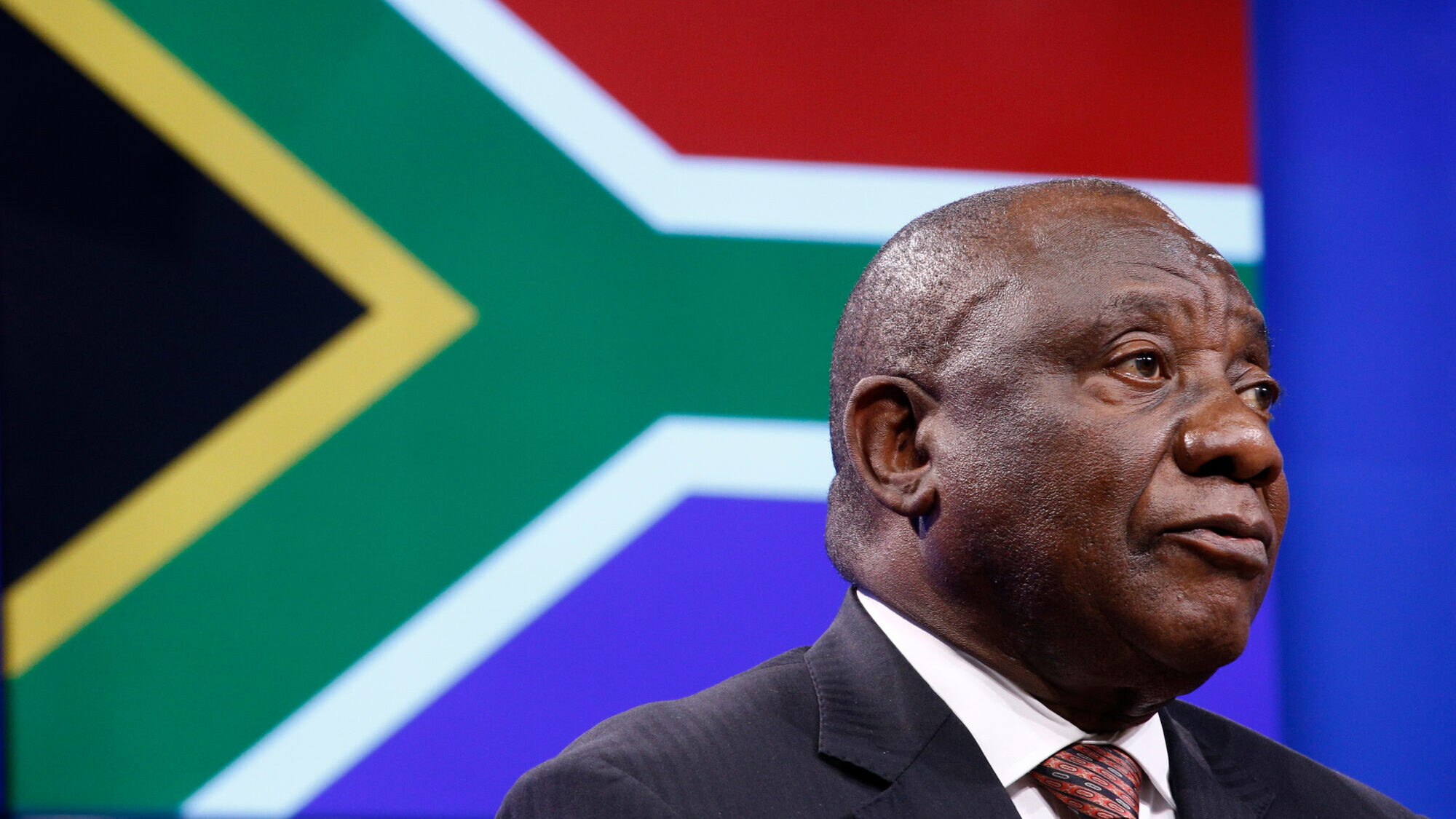
South African President Cyril Ramaphosa.
Photo: Alexandros Michailidis / Shutterstock.com
Following months of speculation, Russian President Vladimir Putin will not attend the BRICS summit in South Africa next month “by mutual agreement,” Pretoria said in a statement released Wednesday, July 19th.
Ahead of the 15th annual BRICS summit set to take place in Johannesburg August 22-24, where dignitaries from Russia, India, China, South Africa, and elsewhere will gather to chart a new, multipolar world order, the host government had faced a diplomatic dilemma over Russian President Vladimir Putin’s possible attendance.
The dilemma, which would have placed the South African government at the center of a conflict between the world’s great powers, stems from an arrest warrant issued earlier this year by the International Criminal Court (ICC) against Russian President Vladimir Putin over war crime allegations—allegations Moscow vehemently denies.
As an ICC member, Pretoria is technically obliged to implement the arrest warrant upon the Russian head of state’s arrival on South African territory, but President Cyril Ramaphosa had previously stated that any attempt to arrest Putin would be tantamount to declaring war on the Russians.
South Africa’s leading opposition party, the Democratic Alliance (DA), views the situation through a different lens, and in an effort to force Ramaphosa’s government to execute the ICC arrest warrant, has taken the matter to the courts.
In court papers that were released to the public on Tuesday, July 18th, Ramaphosa, whose government has not condemned Moscow since the war in Ukraine began, said that “Russia has made it clear that arresting its sitting President would be a declaration of war.”
Furthermore, Ramaphosa said that arresting the Russian head of state would “not be consistent with [South Africa’s] constitution” as it would “risk engaging the country in a war with Russia.” He added that executing the arrest warrant would go against his duty to protect the country.
“The arrest would also undermine a South African-led mission to end the war in Ukraine and “foreclose any peaceful solution,” Ramaphosa added.
Prior to the news that Putin would not be attending the summit in person, the South African government had been seeking an exemption from the rules of the ICC on the grounds that arresting the president of the Russian Federation could threaten “the security, peace, and order of the State,” according to court documents signed by Ramaphosa in June. The documents, which originally had been classified as confidential, were made public days ago by the court.
In recent interviews with the national press, South African Deputy President Paul Mashatile stated that Pretoria had been trying, that far to no avail, to persuade the Russian president to not attend the summit in person so as to avoid the inevitable legal and diplomatic fallout.
If President Putin had attended next month’s summit in person, it would have marked the first time since the ICC was issued against him in March that he has traveled to a country that is a signatory to the treaty.
He will be represented by Russian Foreign Minister Sergey Lavrov instead.
